Greensill Capital
description: a financial services company that specialised in supply chain finance and faced bankruptcy in 2021
10 results

Gambling Man
by Lionel Barber · 3 Oct 2024 · 424pp · 123,730 words
or imagined. The world’s greatest venture capital fund had turned into a giant mutual fund. There were other troubling signs. In late March 2021, Greensill Capital filed for bankruptcy, Less than two years before, after a $1.5bn investment from the Vision Fund, Greensill had been valued at $3.5bn. Now
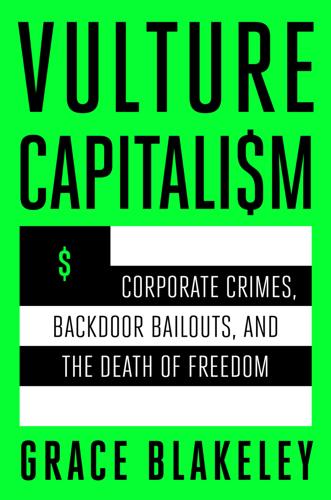
Vulture Capitalism: Corporate Crimes, Backdoor Bailouts, and the Death of Freedom
by Grace Blakeley · 11 Mar 2024 · 371pp · 137,268 words
Stanley, where he spent most of his time trying to “turbocharge” the boring business of “supply chain financing.”68 A few years later he founded Greensill Capital, which specialized in this apparently mundane activity. So what, exactly, is “supply chain financing”? In a world where the production of even a single commodity
…
. But in the postcrisis world of low interest rates and tight regulation, supply chain financing was no longer profitable for traditional banks. That’s where Greensill Capital came in. Greensill would step in to pay a company’s outstanding invoices before collecting payment, plus interest, from the company in the future. But
…
to Credit Suisse’s rescue, injecting $1.5 billion into one of the funds.71 In return, Son demanded that the fund lend only to Greensill Capital. SoftBank pumped hundreds of millions of dollars into Credit Suisse’s specialist supply chain finance fund, which went straight into Greensill’s coffers. In return
…
£335 million of the £350 million lent to Greensill by the UK government is now lost permanently. The events surrounding the rise and fall of Greensill Capital demonstrate quite clearly that the idea of a fixed boundary between public and private—state and market—has always been a fantasy. The wealthy can
…
/2021/apr/13/greensill-scandal-ex-civil-servant-faces-questions-over-whitehall-meetings. 81. Ibid. 82. Kalyeena Makortoff, “Cameron Lobbied UK Government on Behalf of Greensill Capital—Report,” The Guardian, March 19, 2021, https://www.theguardian.com/politics/2021/mar/19/cameron-lobbied-uk-government-behalf-greensill-access-covid-loans-reports-says
…
-gupta-family-group-alliance. 89. National Audit Office, “Investigation into the British Business Bank’s Accreditation of Greensill Capital,” July 7, 2021, https://www.nao.org.uk/reports/investigation-into-the-british-business-banks-accreditation-of-greensill-capital/. 90. There are, of course, plenty of challenges when it comes to talking about “the state
…
, The (Philippon), 87–88 Greene, Marjorie Taylor, 43–44 Green New Deal proposal, 69, 248 Green Party (US), 251 Greenpeace, 140 Greensill, Lex, 152–59 Greensill Capital, 153–59 Greenspan, Alan, 127–29 Green Team Landscaping Co-op (Mississippi), 237 Grundrisse (Marx), 264 Guam, US colonialism and, 173, 174 Guatemala, United Fruit
…
developmentalism in, 137, 170–72, 205–8 fossil-fuel sector and, 139–43 fusion of public and private power in capitalism, 142–43, 159–60 Greensill Capital and supply chain financing, 152–59 Hayek and, see Hayek, Friedrich A. liberal definition of nation-state and, 149–50 in Russia (former Soviet Union
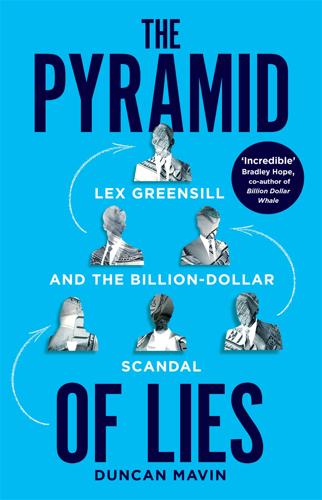
The Pyramid of Lies: Lex Greensill and the Billion-Dollar Scandal
by Duncan Mavin · 20 Jul 2022 · 345pp · 100,989 words
29. Show Me the Money 30. The Nightmare Around Christmas 31. End Game 32. The Aftermath Epilogue Glossary Acknowledgements Index Author’s Note When Greensill Capital began its rapid meltdown in March 2021, the effects were felt around the world, from the UK to Japan, from Australia to the coal fields
…
it also illustrated Lex’s rapid and unlikely ascent to global power player. As a reporter, I’d first written about Lex Greensill in 2019. Greensill Capital was a difficult firm to cover, not least because accurate information was always hard to get your hands on. Greensill’s corporate public relations strategy
…
before worked on a story where so many potential sources would ask for financial reward before they would agree to talk (naturally, I always refused). Greensill Capital also suffered from an incredibly gossipy culture, perhaps because so much centred on Lex himself. Even seasoned, senior executives were often left relying on second
…
are complex. Greensill was no different. Covid-19 helped trigger Greensill’s collapse – it shocked the markets and rattled through Greensill’s business. But Greensill Capital also just wasn’t very profitable. It aimed to hit overly ambitious revenue targets to sustain its sky-high valuation. It grew too fast and
…
designed to prevent a financial scandal. Greensill was one of them. That January dinner was a conservative affair – a reflection of Lex’s personality. Greensill Capital was no hedonistic hedge fund or investment bank. Lex could be charming, but he was not gregarious. He was usually serious, rarely talked about anything
…
other aspiring entrepreneurs who carried the bulk of the technology he needed to run the business. And then he liberally applied the fintech tag to Greensill Capital too. To make it all work, Lex created a tangle of special purpose vehicles (SPVs), trusts, offshore companies and subsidiaries that each played a
…
bureaucrat serving the government of Tory PM David Cameron. Lex moved first to Citi, and then, in late 2011, he started his own firm, Greensill Capital. The chance meeting of Heywood and Greensill at Morgan Stanley might have ended there, with Lex occasionally knocking on the door at the civil service
…
brand Smythson. Sam Cameron mocked Lex’s flimsy Greensill business cards. Lex followed up by having Smythson make the cards for his fledgling firm Greensill Capital. It was an expensive extravagance for a start-up company and there was an echo of a famous episode in Brett Easton Ellis’s postmodern
…
psychotic banker at the heart of the tale seethes with anger when a rival presents him with a more expensive business card. When Cameron joined Greensill Capital, in 2019, it hardly caused a stir at first. Just another former politician taking a private sector role. The former PM’s motivation for
…
to top businesspeople and political leaders alike. Government broadly became a talent pool that Lex frequently dipped into. He hired several former government staffers to Greensill Capital. Bill Crothers was the government’s commercial chief – he’d appointed Lex as a Crown Representative – before he went to work for Greensill. Sean
…
years later. David Brierwood, Lex’s old mentor from Morgan Stanley, was a Crown Representative from 2014 to 2018, and he began working for Greensill Capital from 2014. Lex also hired former UK Home Secretary David Blunkett and Australia’s former Minister of Foreign Affairs, Julie Bishop. How did he get
…
watermelons. Lex and his youngest brother, Peter, had struck a deal that saw Peter – who was building a farming business – get a stake in Greensill Capital and Lex get access to some watermelon revenues to kickstart his company. But he needed more. Lex gradually collected a coterie of wealthy patrons. Perhaps
…
business. By the end of their meeting, instead of Gorman selling tractors to Greensill Farming Group, Lex had persuaded the veteran businessman to invest in Greensill Capital. The company’s accounts show that Gorman, who joined the Greensill board, loaned the company about $24 million. Others soon followed. Like Gorman, several
…
Brierwood, who’d opened a path for Lex from Manchester Business School to Morgan Stanley, continued to be supportive. Brierwood had been a director at Greensill Capital since 2015; even before that, in 2014, his family had loaned Greensill about $10 million. Maurice Thompson, the former head of Citigroup in the
…
CEOs of the biggest banks in the world were no longer playing golf. They were joining fintech company boards. This was the world into which Greensill Capital was born. Lex had his backers – a collection of his former banking bosses and the wealthy Chicago connection. He also managed to persuade a
…
. Even though the Greensill business was not yet profitable, in 2015 he spent about $4 million on a Piaggio P-180 private turboprop plane. Greensill Capital didn’t have much business, but it looked the part. SIX Bottom Feeding Lex had attracted some loyal staff. He had some heavy-hitting financial
…
electronic Financing System (TReFS) programme at Morgan Stanley. Barnes had known Lex Greensill for years. Lex had even tried to hire Barnes to Greensill Capital. (A recurring theme at Greensill Capital is that Lex tried to hire every expert he came across – a smart strategy, though many, like Barnes, turned him down.) Barnes
…
transactions. Instead, Greensill Bank started targeting larger, longer-term deposits. And it started to use those loans to fund supply chain finance deals sourced by Greensill Capital. The bank paid better interest rates than you could get pretty much anywhere else in Germany, and attracted deposits from customers, including a slew of
…
was safe, steady, reliable. The GAM management team was broadly behind it. Friedman decided that if his legal counsel could take a deeper look into Greensill Capital and find nothing untoward, then maybe Solo was right after all. Meanwhile, Solo himself had been lobbying for Lex. He had introduced Lex to
…
impatient for success since OzEcom. He’d pushed boundaries throughout his career. He’d covered over bad loans and other problems since the founding of Greensill Capital. But big private equity firms like GA stake their reputations on their ability to mould difficult businesses into winners. In the end, GA’s
…
was also building a major business that needed all the usual corporate finance services the bank could provide, such as loans and cash management. Finally, Greensill Capital was growing fast, which meant it was raising money, either privately, or potentially through a big initial public offering (IPO). There were huge advisory
…
The returns on offer are ‘hugely attractive’, he said, as are ‘the short duration and insurance cover of the underlying notes.’ The article said that Greensill Capital had started out with ‘a seasoned team of specialists’ and had grown to more than 160 staff in London, New York, Chicago, Frankfurt, Sydney and
…
links, I came across another company called Kerry Ireland Investments. Companies House documents showed that this company was only set up in 2019, and that Greensill Capital had a claim on all its assets (though there was little evidence the company had any assets to speak of). Later, in September 2021,
…
the companies never had any contact with the Swiss bank and there was no documentation linking them to Credit Suisse either. Their relationship was with Greensill Capital. When I got in touch with the CEO of BSi, William Battershill, he replied that Greensill had been a ‘valued and trusted funder’ for
…
parents. Greensill’s farming business was also benefiting from the influx of money into the family. The farm expanded rapidly. Peter’s seed money into Greensill Capital had harvested a fortune. ‘It was a pretty good trade for me in hindsight,’ he told an Australian paper. The family acquired more land
…
. ‘The same way he did business.’ The hiring spree also really gathered pace at this time too. The SoftBank and General Atlantic investments made Greensill Capital a much more credible career move, as did the growing relationship with Credit Suisse. Several new senior hires came on board around this time, including
…
and his son James ‘Jay’ Justice III – set about restructuring Bluestone’s finances and operations. The long-term makeover would not come cheap. Step forward Greensill Capital. Jim Justice had been introduced to Roland Hartley-Urquhart through a mutual acquaintance. This was Roland’s world. The Greenbrier was his comfort zone. He
…
: ‘By way of example, on January 4th, 2019, $15 million of Prospective Receivables were scheduled to ‘mature’ or be rolled over. On that day, Greensill Capital was to ‘purchase’ new Prospective Receivables in the amount of $15 million from Bluestone by wiring to Bluestone a discounted amount of $14,543,186
…
unsecured loans. Other whistle-blower tips came in, making allegations focused more broadly on the financial health of the bank’s 100 per cent owner, Greensill Capital. By March, the regulator was considering asking Greensill to bulk up the amount of capital held at the bank, to further safeguard against the
…
Guy, who was effectively CEO of TBCC, Macey-Dare questioned whether Tokio Marine could really pull the plug. ‘We welcome your strong commitment to support Greensill Capital as your largest customer, as well as valuing support for Marsh as your largest broker,’ he wrote. ‘We recommend you engage with us and
…
Greensill Bank, which technically paid the premiums on the Greensill policies. Brereton had been fired. TBCC had launched a full-blown investigation into ‘dealings between Greensill Capital and Greg Brereton’. The investigation had already found he had exceeded his ‘delegated authority’ – he had written more than A$10 billion in insurance to
…
two main outside investors was strained. And they knew that both the Cantor ‘bad bank’ plan and the SPAC were wildly ambitious, given that Greensill Capital and Greensill Bank were under intense scrutiny from regulators. Lex continued. He stressed a new focus on costs. Spending had to be much more measured
…
inauguration of incoming president, Joe Biden. At this point, there were management or board meetings at Greensill every few days. At one Zoom meeting of Greensill Capital’s top executives, discussion turned to whether the company’s 1,000 or so employees – mostly based in the northwest of England – were caught
…
was looking to pay less than $100 million for the lot. Lex was also working on a plan to deal with the onrushing insurance calamity. Greensill Capital had several insurance policies representing about $10 billion of cover with TBCC, owned by Tokio Marine. The most important was the Standalone Policy, which
…
saw as a sinking ship. In the first two weeks of February, Hanafin, Garrod, Crothers and several others were all taken off the board of Greensill Capital, the main UK operating company within the Greensill group. As other senior figures departed, Lex remained stoic. But each departure deepened the sense of
…
was covered with family photos. In an opening statement, Lex initially sounded contrite. ‘Please understand that I bear complete responsibility for the collapse of Greensill Capital.’ Lex said how sad he was for his staff, Greensill’s clients and the investors in Greensill’s funds. And then he blamed someone else
…
typically target young, fast-growing companies that require an injection of cash and management advice to accelerate their development. The firm invested $250 million into Greensill Capital. GAM – Global Asset Management, or GAM, was founded in 1983 by the investor Gilbert de Botton. The company manages investments for wealthy individuals, pension
…
and UBS. It has been independent since 2009. The firm was one of the first major financial institutions to invest significantly in assets sold by Greensill Capital. Global financial crisis – The global financial crisis of 2007 to 2009 was sparked by a crisis in the US mortgage market whose ripple effects
…
process, but the rewards can be enormous for existing shareholders, including employees, who can sell their shares and convert wealth on paper into real money. Greensill Capital was targeting a multibillion-dollar IPO before its collapse in early 2021. SCF – Supply Chain Finance, also known as Reverse Factoring, is a kind
…
activity. Their use is a legitimate and necessary part of the modern business world, but they can also add complexity and obfuscation to business transactions. Greensill Capital used several SPVs to process the assets it sold to investors. SoftBank Vision Fund – The $100 billion Vision Fund, founded in 2017, was set
…
Valley, is the biggest technology-focused investment fund in the world. It is based in the UK, and provided billions of dollars of backing to Greensill Capital. TBCC – The Bond and Credit Company is a small Australian insurance firm specializing in trade credit insurance. TBCC was founded in 2013. In 2019,
…
default on payments that come due. Several major global companies provide trade credit insurance, charging premiums based on the likelihood of non-payment. Many of Greensill Capital’s supply chain finance loans were sold to investors on the basis that they were protected by trade credit insurance. Acknowledgements The Greensill saga unfolded
…
ref1, ref2, ref3, ref4 Crain’s (magazine) ref1 Credit Suisse ref1, ref2, ref3, ref4, ref5, ref6, ref7, ref8 and the Covid-19 pandemic ref1 and Greensill Capital ref1, ref2, ref3, ref4, ref5, ref6, ref7, ref8, ref9, ref10, ref11, ref12, ref13, ref14, ref15, ref16, ref17, ref18, ref19, ref20, ref21, ref22, ref23, ref24,
…
MBA at the Alliance Manchester Business School ref1, ref2, ref3, ref4, ref5, ref6 and 5th Finger ref1 and Greensill Bank AG (formerly NoFi) ref1 and Greensill Capital ref1, ref2, ref3, ref4 acquisitions ref1, ref2 aircraft leasing deals ref1 attempts to raise emergency finance ref1, ref2, ref3 avoids toughest regulators ref1 BaFin probe
…
ref4, ref5, ref6, ref7 private aircraft ref1 regulation ref1 and Softbank ref1, ref2 technology ref1 and trade credit insurance ref1, ref2 whistle-blower at ref1 Greensill Capital ref1, ref2 aircraft leasing deals ref1 allegations of corruption at ref1 and the Atlantic 57 loan ref1, ref2, ref3, ref4, ref5 avoids toughest regulators ref1
…
ref13, ref14, ref15, ref16, ref17, ref18, ref19, ref20, ref21, ref22, ref23, ref24 SPAC talks ref1 start-up style management ref1, ref2 takes loan from the Greensill Capital family ref1 technology ref1, ref2, ref3, ref4 and Tim Haywood ref1, ref2, ref3, ref4, ref5, ref6, ref7, ref8, ref9, ref10 and Tower Trade ref1, ref2
…
ref1 Smythson ref1 SNL Financial ref1 Société Générale ref1 SoftBank ref1, ref2, ref3, ref4, ref5 corporate espionage ref1 and Greensill Bank AG ref1, ref2 and Greensill Capital ref1, ref2, ref3, ref4, ref5, ref6, ref7, ref8, ref9, ref10, ref11, ref12, ref13, ref14, ref15, ref16, ref17, ref18, ref19, ref20, ref21, ref22, ref23, ref24
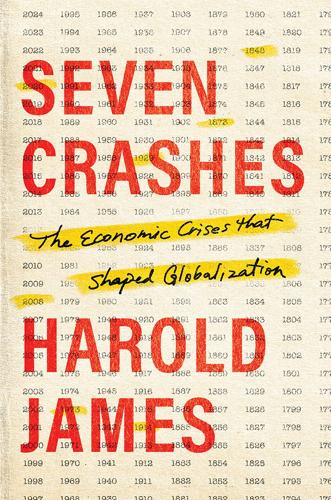
Seven Crashes: The Economic Crises That Shaped Globalization
by Harold James · 15 Jan 2023 · 469pp · 137,880 words
transformational finance with the centrality of access to government and the levers of power. A few months after a $7 billion IPO was being discussed, Greensill Capital was no longer in business. The company became insolvent in March 2021, after $4.6 billion insurance cover lapsed and the firm’s funding sources
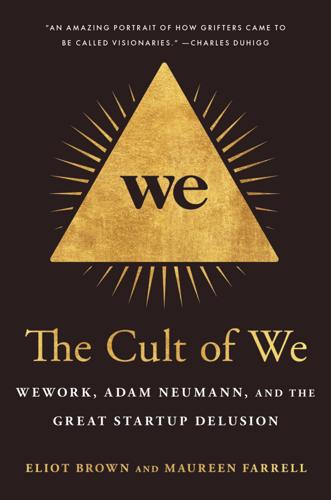
The Cult of We: WeWork, Adam Neumann, and the Great Startup Delusion
by Eliot Brown and Maureen Farrell · 19 Jul 2021 · 460pp · 130,820 words
Son introduced as someone who would be able to fix WeWork’s need for billions. He breezed over a plan whereby the banker’s company—Greensill Capital—would provide WeWork with a loan. The offer was immediately greeted with skepticism by the WeWork team. Were they really going to rely on someone
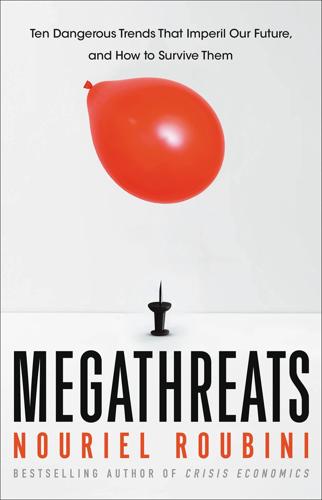
MegaThreats: Ten Dangerous Trends That Imperil Our Future, and How to Survive Them
by Nouriel Roubini · 17 Oct 2022 · 328pp · 96,678 words
the only player that became too enamored of risk as borrowing costs became dirt-cheap. Its debacle came within weeks of news that regulators seized Greensill Capital, an investment firm that proposed financing arrangements for risky start-up companies, including makers of a nuclear submarine, and facilities used in the Muslim pilgrimage
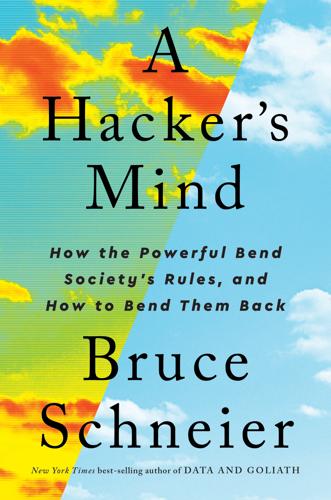
A Hacker's Mind: How the Powerful Bend Society's Rules, and How to Bend Them Back
by Bruce Schneier · 7 Feb 2023 · 306pp · 82,909 words
, leave them with more debt, then sell them for even more profit—with all the debtors left holding the (empty) bag. Consider the case of Greensill Capital, which collapsed spectacularly in 2021. Its unsustainable expansion over the course of ten years—from supply-chain finance startup, to multinational middleman with a $4
…
planners. We just call them ‘venture capitalists,’ ” New York Magazine, https://nymag.com/intelligencer/2020/12/wework-venture-capital-central-planning.html. 102the case of Greensill Capital: Eshe Nelson, Jack Ewing, and Liz Alderman (28 March 2021), “The swift collapse of a company built on debt,” New York Times, https://www.nytimes
…
.com/2021/03/28/business/greensill-capital-collapse.html. 25. HACKING AND WEALTH 104cum-ex trading: David Segal (23 Jan 2020), “It may be the biggest tax heist ever. And Europe wants
…
, 25, 27 Goebbels, Joseph, 181 Goldin, Daniel, 115 Goodhart’s law, 115 Google, 185 GPT-3, 220 Great Depression, 74 Great Recession, 96, 173–74 Greensill Capital, 102 Grossman, Nick, 245 Grubhub, 99 Hacker Capture the Flag, 228 hackers competitions for, 228 motivations of, 47 types, 22 hacking as parasitical, 45–47

Tory Nation: The Dark Legacy of the World's Most Successful Political Party
by Samuel Earle · 3 May 2023 · 245pp · 88,158 words
. David Cameron comes from a family of stockbrokers stretching back centuries, and after resigning as prime minister he went to work for financial services company Greensill Capital, lobbying the Conservative government he once led. Theresa May spent twelve years at the Bank of England before becoming a Conservative MP. Rishi Sunak, who
…
–9 Great Recession (2007–9) 18, 37, 176, 255 Great Reform Acts: (1832) 20–1, 85, 256; (1867) 20, 38, 256; (1884) 20–1, 256 Greensill Capital 251 Guardian 31, 155, 180, 188, 224, 233, 234, 235 Hague, William 54, 141, 186, 187 Hall, Stuart 120, 149, 265, 266, 268 Hardie, Keir
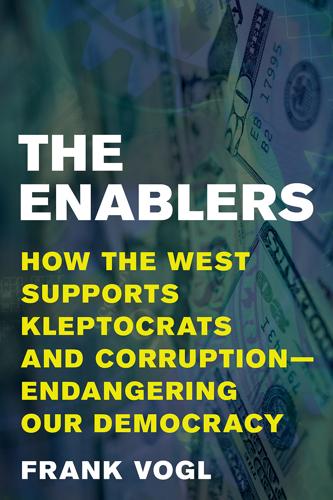
The Enablers: How the West Supports Kleptocrats and Corruption - Endangering Our Democracy
by Frank Vogl · 14 Jul 2021 · 265pp · 80,510 words
company called Archegos Capital Management, which followed major other losses running into further billions of dollars related to the collapse of another finance company called Greensill Capital. The cumulative losses were so large that it said it would cut its dividend by two-thirds, suspend a planned stock buyback program, and cut

The Nowhere Office: Reinventing Work and the Workplace of the Future
by Julia Hobsbawm · 11 Apr 2022 · 172pp · 50,777 words
the Wirecard insolvency scandal of 2019 in which a $1-billion fraud was exposed by a whistleblower at the Munich-based payment firm; or the Greensill Capital lobbying scandal of 2020 which engulfed the reputation of former Prime Minister David Cameron.6 It seems as if corporations are often not good at